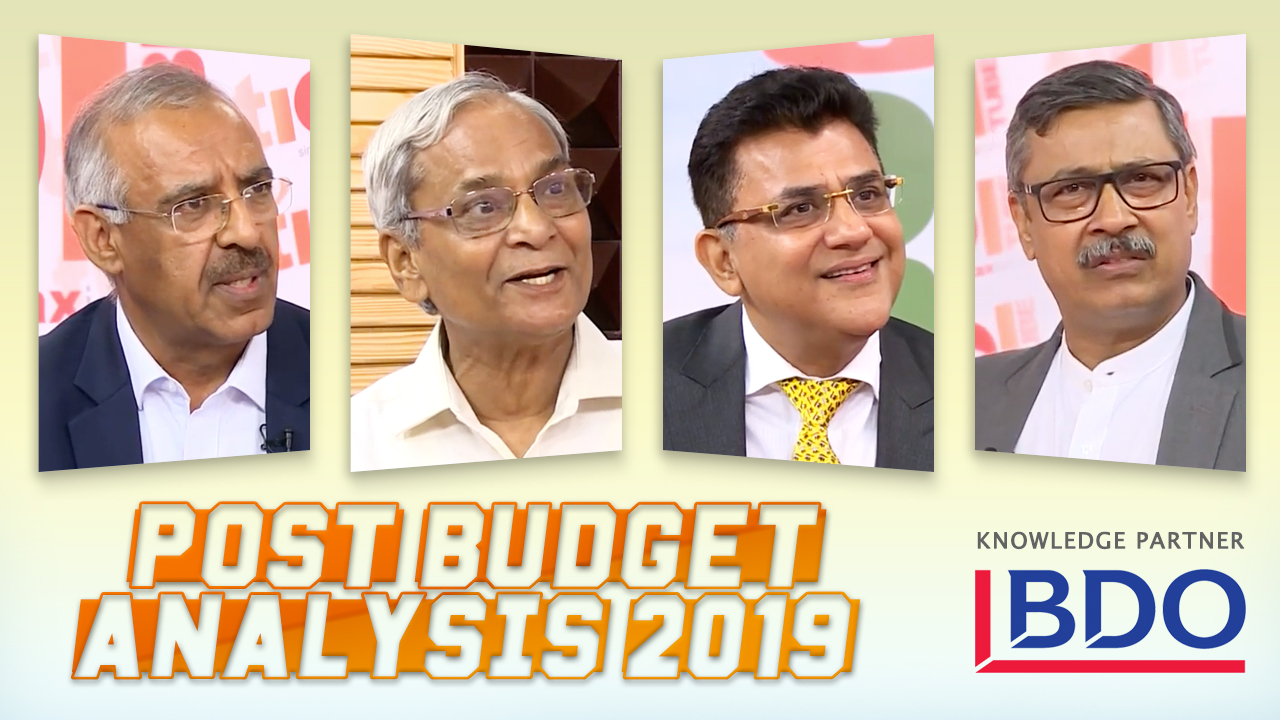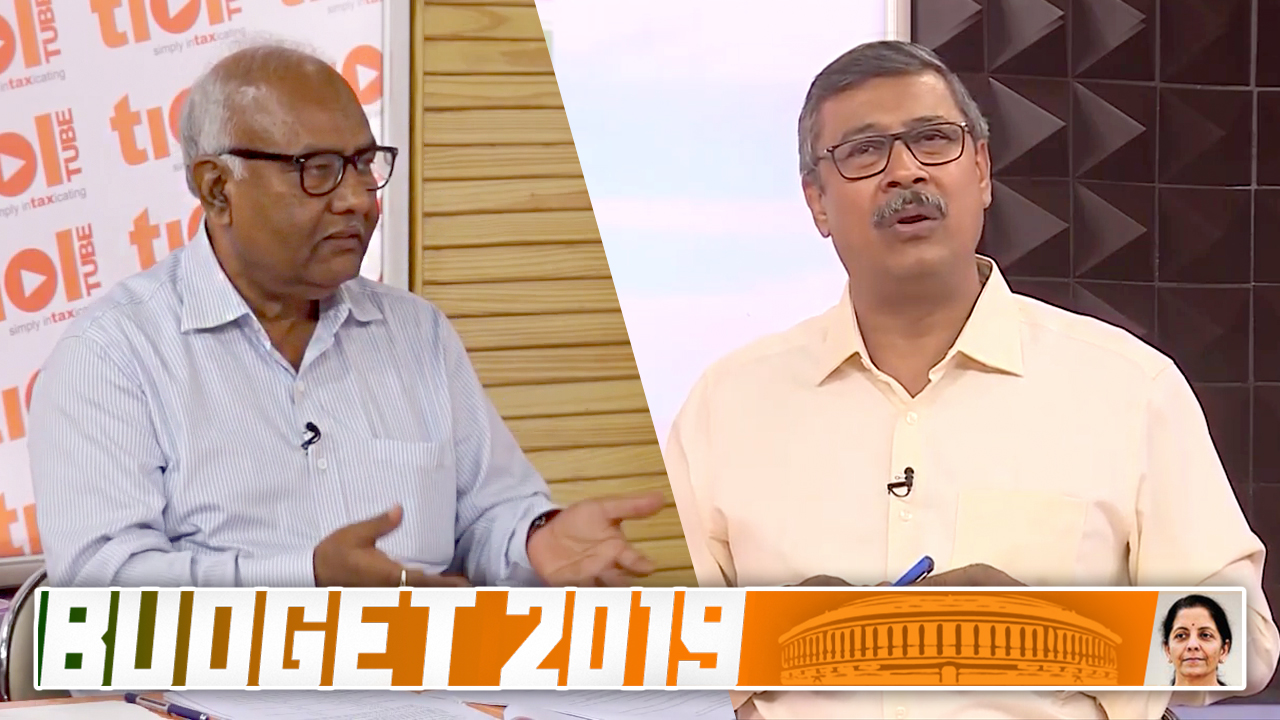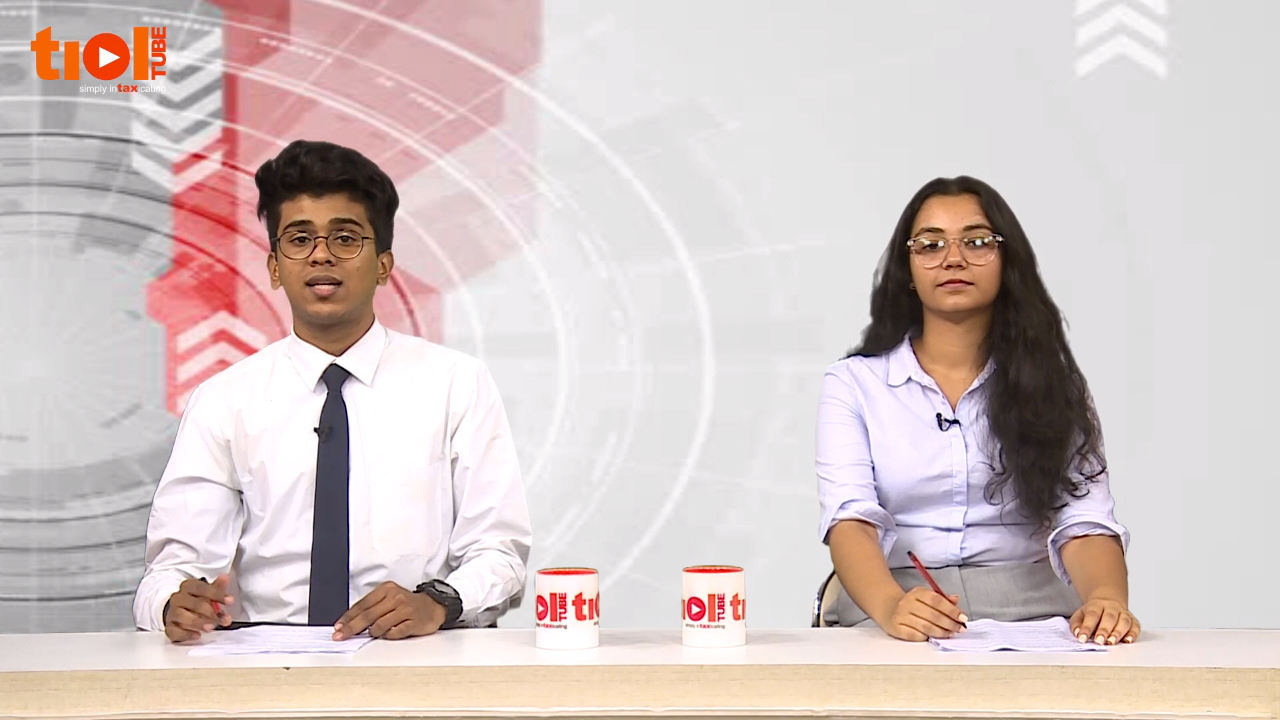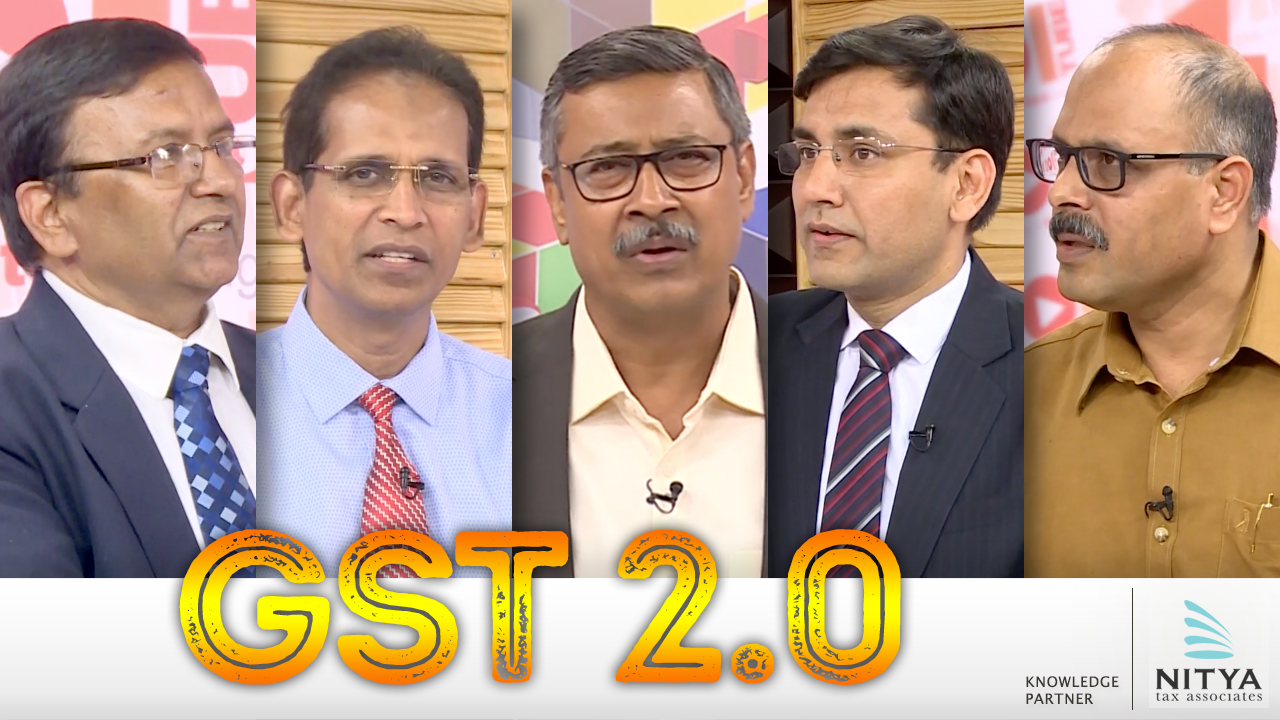|
SERVICE TAX
2019-TIOL-1917-CESTAT-DEL
RK Carriers India Pvt Ltd Vs CCE & ST
ST - SCN was issued to the appellant mentioning therein that it appeared to the Department that the appellant had not paid service tax under 'Business Auxiliary Service' and 'Cargo handling services' - Commissioner held that the activity carried out by the appellant for loading of various types of ores into trucks/tippers, transportation of loaded trucks/tippers from one place to another place within the mining area would fall within the definition of 'Cargo handling services' - demand confirmed, hence appeal to CESTAT.
Held: From the work order it is clear that the activity that was conducted by the appellant was loading of different types of finished crushed products from the place of crushing located in the crushing unit and shifting/ transportation of the finished crushed product up to a maximum distance of 500 meters from the crushing plant to the designated place within the mining area - transportation of the ores located at different locations within the mining area would not fall within the definition of 'Cargo Handling services' - impugned order set aside and appeal allowed: CESTAT [para 6, 7]
- Appeal allowed: DELHI CESTAT
2019-TIOL-1916-CESTAT-MUM
Federal Express Corporation Vs Commissioner of CGST & CE
ST - CENVAT - Input Service - Rule 2(l) of CCR, 2004 - Customs clearance services provided by FedEx Express is directly connected with the courier services of import and export shipments provided by the Appellant, without which the Appellant cannot provide services to its customers, therefore undoubtedly the same is 'input service' - Merely because the invoice of FedEx Express recorded that the charges are recovered as reimbursement charges of Jeena & Co., it does not take away the fact that it is essentially the consideration for the customs clearance services provided by FedEx Express through Jeena & Co. to the Appellant - Credit admissible: CESTAT [para 5]
ST - CENVAT - Keeping the vehicle in good condition is very essential for providing the courier service by the Appellant, hence is an Input Service: CESTAT [para 6]
ST - CENVAT - M/s. Prakash Airfreight Private Ltd. (Pafex) provided co-loader services to the Appellant and while providing the services, they charged the expenses such as Octroi charges, mobile and telephone expenses from the Appellant which are admittedly installed at the premises of the said M/s. Prakash Airfreight Pvt. Ltd. - On the ground that nothing has been produced which shows that actually the mobile and telephone expenses have been incurred by the said M/s. Prakash Airfreight Pvt. Ltd. exclusively in connection with the output service provided by the Appellant, therefore the same has been rejected by authorities below.
Held: These services are to be considered as input service used for output service, in particular, when the Revenue could not establish with any evidence that the octroi/telephone/mobile has been used by the said M/s. Pafex for its personal use: CESTAT [para 7]
ST - CENVAT - Demurrage charges are paid by the C&F service provider on behalf of the Appellant and billed to the Appellant as Out of pocket expenses - Demurrage is part of handling of import and export shipments of the appellant and, therefore, the Cenvat credit of tax paid on such demurrage charges is available to the appellant: CESTAT [para 8]
- Appeal allowed: MUMBAI CESTAT
2019-TIOL-1915-CESTAT-ALL
Oswal Overseas Ltd Vs CCE
ST - During the relevant period from 16.11.1997 to 01.06.1998 appellant was availing the services from the "Goods Transporter Operators" - on instructions of the visiting staff from department, appellant was made to pay service tax on 27.02.2002 - subsequently refund was claimed on 18.06.2002 on the ground that the issue stands decided in their favour by the Supreme Court's decision in the case of M/s Laghu Udyog Bharati - 2002-TIOL-162-SC-ST and the retrospective amendment made to the legal provisions, they would not require them to pay the Service Tax - On the ground that no show cause notice was issued to them for recovery of amount and the same stands deposited by the appellant on their own, refund claim rejected - appeal to CESTAT.
Held: An identical issue was subject matter of Tribunal's decision in the case of M/s Seksaria Biswan Sugar Factory Ltd. Vs Commissioner of Central Excise, Lucknow, Final Order No.70070/2015 dated 01.10.2015 wherein after taking into consideration the entire facts, benefit was extended to the assessee even though no show cause notice was issued and service tax was deposited by the assessee under the instruction of the Revenue - Bench agrees with the contention that the appellant cannot be penalized for obeying the instructions of visiting staff - Accordingly, the impugned order is set aside and the authorities below are direct to process the assessee's claim for refund of the deposited amount - Appeal allowed: CESTAT [para 5, 6]
- Appeal allowed: ALLAHABAD CESTAT
CENTRAL EXCISE
2019-TIOL-1914-CESTAT-BANG
Godavari Biorefineries Ltd Vs CCT & CE
CX - The assessee's accounts were audited during the relevant period, whereupon it was noted that the assessee availed Cenvat credit of service tax paid on the development and annual maintenance of a website www.kisansabha.com - The Revenue issued SCN proposing to disallow credit - On adjudication, raised demand for reversal of credit with interest & imposed equivalent penalty u/s 78 of Finance Act - Such findings were sustained by the Commr.(A) - Hence the present appeal by the assessee.
Held: The assessee's accounts were audited in August 2014 but the SCN was issued in December 2015, which is beyond the one-year limitation period as prescribed under the CEA 1944 - Pursuant to audit, no material came to the notice of the Revenue which was relied on for issuing the SCN - The SCN was based on the audit report itself - It is settled principle that extended period of limitation cannot be invoked in cases where SCN is based on audit - Besides, the assessee reflected the credit in its returns - The Revenue merely alleged that suppression was detected upon audit and that the same would have continued unnoticed if it had not been pointed out upon audit - This is insufficient reasons for invoking extended limitation - Hence the demand is barred by limitation & the O-i-A in challenge is quashed: CESTAT
- Assessee's appeal allowed: BANGALORE CESTAT
2019-TIOL-1913-CESTAT-MUM
CCE Vs Cipla Ltd
CX - Notification 23/2003-CX & 19/2006-CX - Allegation of Revenue is that the stock transfer effected by the respondent from its 100% export oriented unit to its own units elsewhere does not amount to sale and is, therefore, not covered by the exclusion for levy of special additional duty.
Held: Issue is no longer res integra - The purpose of levy of special additional duty is to countervail imports with a standard rate of duty approximating to the lowest tax on sale of goods within the country - There is, however, an exemption which is accorded to imported goods to the extent that tax at a rate, not less than that prescribed under notification no. 19/2006-Cus dated 1st March 2006, is liable to be discharged as sales tax/VAT - It is in the discharge of that liability that entitlement to exemption is accorded even though the refund is granted, in accordance with the special procedure, only after such discharge - The exemption accorded to export oriented unit, and others similarly situated, are intended to eliminate the intrusion of tax in commercial activity and to the extent that such units otherwise subject to special additional duty are under the control of the central excise authorities and unlike importers, are eligible from exemption notification no. 23/03-CE dated 31st March 2003 which applies to all levies - In the present instance, it is not the case of Revenue that the goods cleared from 100% export oriented unit are exempted or not liable to sales tax/VAT - The postponement of inevitable tax does not, in any way, impact upon the eligibility to exemption - Revenue appeal dismissed: CESTAT [para 4, 5]
- Appeal dismissed: MUMBAI CESTAT
2019-TIOL-1912-CESTAT-MUM
Finolex Cables Ltd Vs CCE
CX - Valuation - Battery/Ignition Cables used in Automobiles cleared by valuing in terms of s.4 of the CEA, 1944 - Revenue contention is that the goods are to be assessed in terms of section 4A of the CEA, 1944 since they are specifically used in automobiles and are to be considered as parts and accessories of automobiles - differential duty demand confirmed by lower authorities - assessee is in appeal and contends that the goods were being cleared by classifying under heading 8544 and the Revenue without changing the assessment from "cables" to "parts and accessories of automobiles" cannot seek valuation u/s 4A of the CEA, 1944.
Held: Appellants are trying to mix two different things - classification of goods under Central Excise Tariff Heading and valuation of the same under MRP basis are altogether different propositions, hence, the Appellants contention on the basis of classification are unacceptable - It is evident that the impugned goods are tailor made to be used in automobiles and the Appellants themselves advertised and packed the products describing the same to be used in automobiles - appellants are manufacturing "Auto Cables, Battery Cables and Ignition cables", which have a specific use only in the 'Automobile Industry' and are cleared in retail packages affixed with MRP - It is prudent that the goods are to be understood/evaluated/classified as per the perception and use of the customers, therefore, Bench finds force in the department's contention that the auto cables and battery/ignition cables manufactured and cleared by the Appellants are to be treated as automobile parts - As long as they were covered under Standards of Weights and Measures Act, 1976 and they are not exempted under Rule 34 of Standards of Weights and Measures Rules (Packaged Commodities) Rules, 1977, assessment of the same requires to be done under Section 4A of the Central Excise Act, 1944 - auto/battery/ignition cables manufactured by the Appellants are essential parts of automobiles and are covered as "parts, components and assemblies of automobiles", under the notification No. 11/2006-CE(NT) dated 29.05.2006, 14/2008-CE (NT) dated 01.03.2008 and 14/2008-CE (NT) dated 24.12.2008 and have been rightly assessed by Revenue u/s 4A of the CEA, 1944: CESTAT [para 5.1, 5.4]
CX - Limitation - Appellants have been submitting the RT-12 returns regularly; during the period several audits were conducted by the department; department was aware of the manufacturing of cables and the valuation practice adopted thereof and all the material facts relating to the manufacture, clearance and valuation of the cables to dealers/distributors was in the knowledge of the department, therefore, extended period of limitation cannot be invoked - it is not open for the department to sit over the RT-12 returns over a period of time and invoke extended period on the completion of investigation - Department was free to raise queries on the returns filed/during the visit of audit parties to obtain necessary information from the Appellants - demand is upheld on merits but restricted to the normal period of limitation, for which purpose, the matter is remanded to the original authority - Penalty u/s 11AC is also not imposable: CESTAT [para 5.5]
- Appeals partially allowed: MUMBAI CESTAT
CUSTOMS
2019-TIOL-1911-CESTAT-MUM
Renaissance Jewellery Ltd Vs CC
Cus - During the relevant period, the assessee-company underwent verification of stocks, whereupon shortage of stock was discovered - The assessee claimed that the unit in the SEEPZ is eligible to import gold & silver without payment of duty for manufacture of export products as per Notfn No 177/94-Cus - It also claimed that the shortage of stock was caused due to normal processing loss.
Held: Import of Gold is covered under Notfn No 177/94-Cus which imposes certain conditions upon such units - Besides, while proper account of import, consumption and utilization are to be maintained for periodic submission to the Asst Commr. of Customs, it is the satisfaction of the Development Commissioner on the usage of the goods for the purpose specified in the notfn or any other purpose permitted in the Export Import Policy that must be complied with - In the present case, there is no record of satisfaction recorded by the Development Commissioner - In absence of any evidence of removal from the export processing zone without following the proper procedure or of having failed to satisfy the Development Commissioner of proper utilization, no duty can be raised or penalty be levied - Hence the O-i-O in challenge merits being quashed: CESTAT
- Assessee's appeal allowed: MUMBAI CESTAT
2019-TIOL-1910-CESTAT-AHM
Namco Industries Pvt Ltd Vs CC
Cus - The assessee have imported second hand machinery with accessories under EPCG scheme - The said machineries were carried in containers - After import of consignment, assessee removed the machineries from containers and installed and used the same - The case of department is that since the containers were not returned back and retained by assessee, its value should have been declared to Customs in bills of entry but the same was suppressed and accordingly the said containers are liable for confiscation - The containers were ordered to be confiscated on the ground that the assessee have not declared the container in bill of entry in which the goods imported were packed - On perusal of import documents, it is found that shipping bill and invoice clearly bear the description of goods duly packed in the container - From the certificate given by supplier also, it is clear that the supply of Hi Reversing Plate Mill complete in all respect are duly packed in the containers and the value of the machine is inclusive of cost of containers - There is no basis to allege that either the assessee has not declared or mis-declared the description of goods or suppressed the value of the containers - In case of Jain Shudh Vanaspati, it was held that Edible Oil imported in stainless steel containers, separate duty not leviable on such containers and such containers are not liable to confiscation - No substance found in the charge of Revenue that import of container was not declared by assessee - Therefore, the entire deal between the supplier and the assessee was to import the machine under EPCG scheme duly packed in the container - Therefore, it is not a case of mis-declaration or suppression of any value - Accordingly, the impugned order is set-aside: CESTAT
- Appeal allowed: AHMEDABAD CESTAT |








